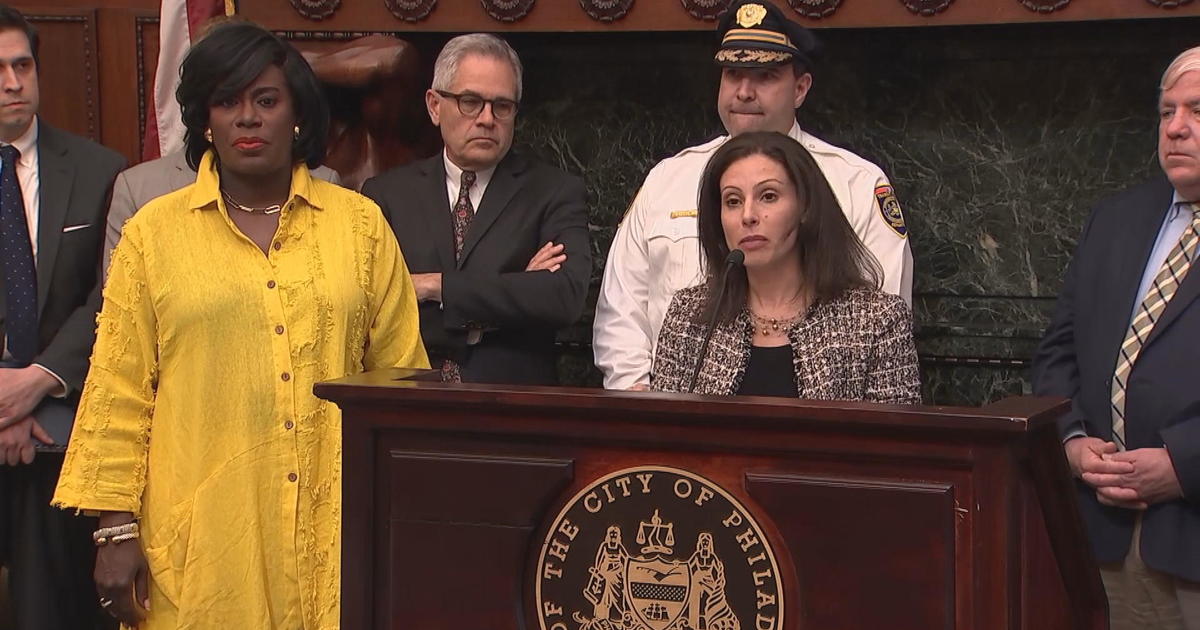Philadelphia's Amended 'Ban The Box,' Law Aims To Open Job Opportunities For Those With Criminal Past
PHILADELPHIA (CBS) -- An amendment that expands Philadelphia's ban the box law went into effect on Monday. It's designed to open up more job opportunity for the city's 300,000 residents who have a criminal past.
Under the "Ban the Box" law, employers were prohibited from asking applicants about their criminal background or from running a background check until after an initial interview. In addition, employers were not allowed to consider arrests that did not result in conviction. The reality for many ex-offenders was that even with ban the box, they were shut out from jobs without knowing why the employer declined to hire them.
Signed into law last December, the amendment to Philadelphia Fair Criminal Records Screening Standards Ordinance, which went into effect Monday, changes the game on how employers review criminal backgrounds.
"Employers used to go back 20-30 years on a person," says Wayne Jacobs, executive director of Ex-Offenders for Community Empowerment. His group helps ex-offenders who have paid their debt to society. He advocated for the amendment and says it'll open the doors.
"We had no way to hold employers accountable," he says of "ban the box," "Now there will be a record."
Under the expanded law, employers must give a conditional offer before they run a criminal background check, they must also ignore criminal records more than seven years old and if they decide to reject someone based on their background they have to notify them of the decision, as well as other requirements.
"This law should really help reduce poverty and reduce recidivism," says Brendan Lynch, a staff attorney with Community Legal Services of Philadelphia. He helped to craft the amendment, one he says makes hiring more fair.
"Employers will be precluded from turning people away based on clearly irrelevant, ancient convictions," he says.
While there are exceptions to the new rules, Lynch notes that employers will need to rework their hiring practices to evaluate applicants with criminal backgrounds individually. Employers will be prohibited from any blanket exclusion of applicants based on criminal backgrounds and will have to reconsider their rejections of ex-offender applicants by looking at the seriousness of the offense, whether it applies to the job and any evidence of rehabilitation.
"If they turn someone down they will be expected to give them a copy of the record they were looking at," says Lynch, "people will now be entitled to look at what employers are seeing-- because many of these criminal databases contain errors."
Lynch says this gives those with criminal records a chance to make corrections, as well as an opportunity to have a discussion with the employer about their past. He says if a problem arises and it becomes clear that an employer is refusing to hire someone even though the criminal record is old and not relevant to the job, the applicant can file a complaint with the Philadelphia Commission on Human Relations.
"This will give the applicant a fair shot at a job," says Lynch.
"I have people who have master degrees, one who is working on his doctorate," says Jacobs, "this will allow people them to seek work at their skill level."
Recent reports show that unemployment among ex-offenders hovers about 50 percent. This means those with criminal records are unable to earn livable wages in many cases, leaving many families in poverty. Jacobs believes this new amendment will put many Philadelphians back to work.
For more, go to http://www.phila.gov/HumanRelations/DiscriminationAndEnforcement/Pages/ChangestotheBantheBoxLaw.aspx.



